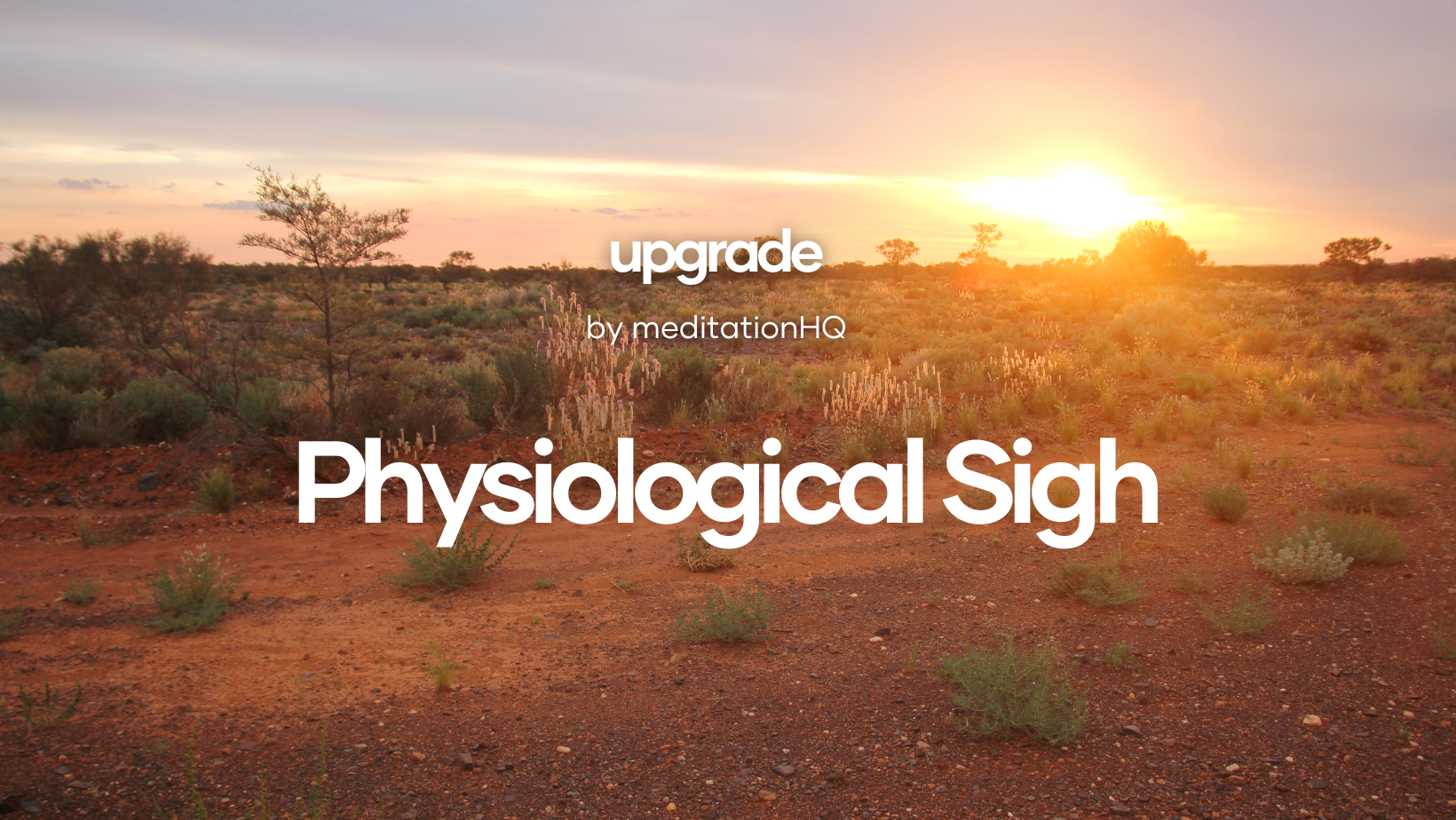Mastering Stress: The Power of the Physiological Sigh
In the hustle and bustle of modern life, stress seems to be an unavoidable companion. Whether it’s the pressure of deadlines at work, the demands of family life, or the constant barrage of information and stimuli bombarding us from all angles, stress can take its toll on our mental and physical well-being. As a meditation and performance coach, I’ve made it my mission to equip individuals like you with the tools and techniques needed to navigate life’s challenges with grace and resilience. And that’s where the physiological sigh comes in.
Understanding the Physiology of Stress
First, let’s take a moment to understand the physiology of stress. When we encounter a stressor, whether it’s a looming deadline or a difficult conversation, our body’s natural response is to initiate the “fight or flight” response. This evolutionary mechanism floods our system with stress hormones like adrenaline and cortisol, preparing us to either confront the threat head-on or flee from it.
While this response can be life-saving in genuine emergencies, chronic stress can wreak havoc on our health and well-being. It can lead to a host of physical and mental health issues, including high blood pressure, weakened immune function, and anxiety disorders. That’s why it’s essential to have effective strategies in place to manage stress and mitigate its harmful effects.
The Power of the Physiological Sigh
Enter the physiological sigh—a simple yet potent breathwork technique that can help you rapidly reduce stress and anxiety levels. This technique, which involves taking two sharp inhales followed by a slow, prolonged exhale, works by increasing oxygen intake and expelling carbon dioxide from the body.
The beauty of the physiological sigh lies in its simplicity and efficacy. In just a few breaths, you can shift your body from a state of heightened arousal to one of calm and relaxation. I’ve personally been using this technique for years, both in my own life and with my clients, and the results speak for themselves. Whether you’re gearing up for a high-stakes presentation, navigating a tense situation at home, or simply feeling overwhelmed by the demands of daily life, the physiological sigh can be a powerful tool in your stress management toolkit.
The Science Behind the Sigh
But don’t just take my word for it—there’s plenty of scientific evidence to back up the effectiveness of the physiological sigh. Research has shown that deep breathing techniques like the physiological sigh can activate the body’s parasympathetic nervous system, also known as the “rest and digest” response. This helps counteract the effects of the sympathetic nervous system, which governs the “fight or flight” response, and promotes a sense of calm and relaxation.
Furthermore, studies have demonstrated that deep breathing techniques can have a profound impact on various physiological parameters, including heart rate, blood pressure, and cortisol levels. By incorporating the physiological sigh into your daily routine, you can train your body to respond more adaptively to stressors, reducing the overall burden on your system and promoting greater resilience in the face of adversity.
Integrating the Physiological Sigh into Your Life
So, how can you start harnessing the power of the physiological sigh in your own life? It’s simpler than you might think. The next time you find yourself feeling stressed or anxious, take a moment to pause and connect with your breath. Then, follow these steps:
Take two sharp inhales, filling your lungs as fully as possible.
Exhale slowly and steadily, allowing the breath to escape from your body in a controlled manner.
Repeat this process for several breaths, focusing on the sensation of the breath moving in and out of your body.
Mastering stress is not about eliminating it entirely from our lives—that would be both impossible and undesirable. Instead, it’s about learning to navigate life’s ups and downs with grace and resilience, cultivating a sense of inner peace and equanimity that allows us to thrive in the face of adversity. The physiological sigh is just one tool in your arsenal, but it’s a powerful one—one that I encourage you to explore and incorporate into your own practice.
You can practice the physiological sigh anytime, anywhere, and as often as needed. Whether you’re sitting at your desk, stuck in traffic, or lying in bed at night, a few moments of mindful breathing can work wonders for your mental and emotional well-being.
Join Upgrade
Ready to take the first step towards a brighter future? Join Upgrade, life done better. Together, we’ll embark on a journey of growth, empowerment, and transformation.
With gratitude and best wishes,
Jason Partington
Founder, Meditation & Performance Coach



